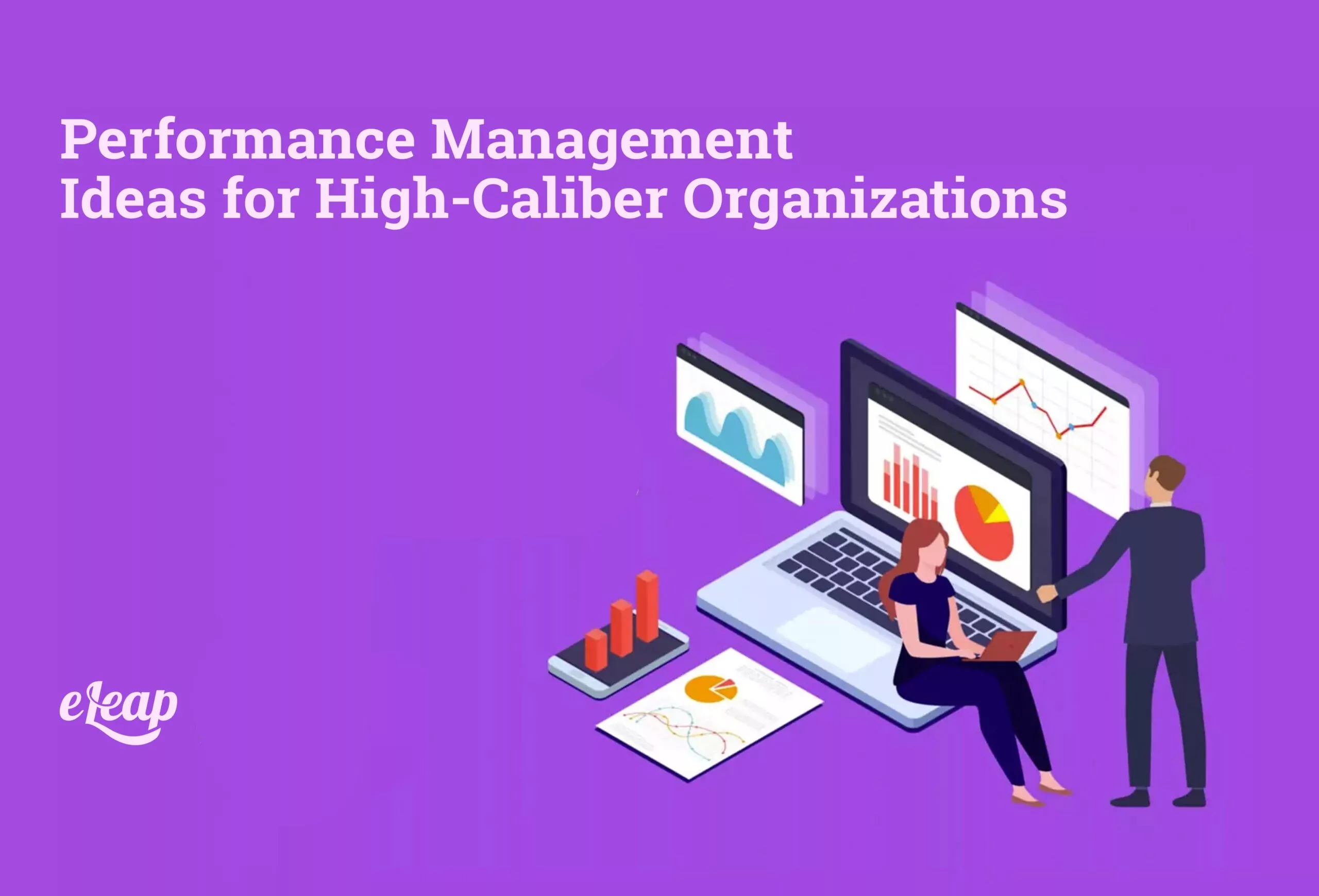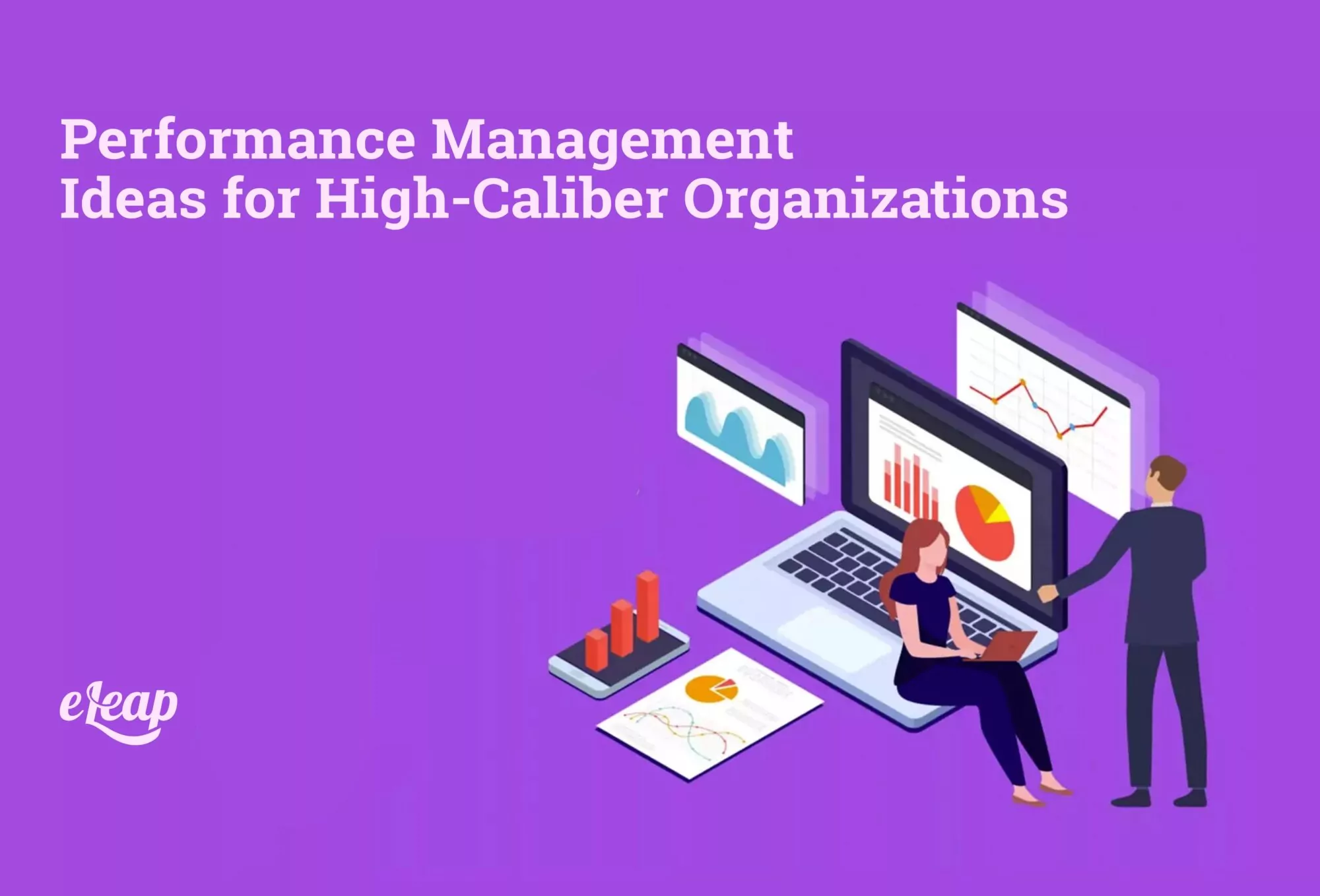Performance Management Ideas for High-Caliber Organizations

High-Caliber Organizations! The more the job market opens up and the demand for high-level talent increases, ensuring team members are happy and productive is extremely important. Creating an efficient performance management system is vital for the health of your organization.
It’s important to note that a good PMS platform should be a mix of elements that ensure your team members’ happiness and productivity while showing a genuine concern for their individual goals. This has to be done while simultaneously ensuring the vision they have for their own position aligns with your organization’s overall goals.
There also needs to be a focus on the management of an organization as well. Their performance is just as important as that of team members. Leaders should always coach, develop, and groom team members to promote leadership from the inside.
At the end of the day, performance management is key for retaining the highest levels of talent in your industry and driving the success of your organization. The following article outlines the best performance management ideas for high-caliber organizations performing in the upper echelon of business.

1. Clear Expectations
The most important first step in any performance management platform is outlining clear expectations for your team members. Without a clear direction and goals for your team members to follow, it becomes impossible to gauge their success and overall progress within your organization.
It’s important that you’re as transparent as possible with what you expect of team members. Not only should your expectations be clear, but your reasoning behind these expectations should be clearly outlined as well.
2. Setting, Tracking, and Meeting Goals
The second most important step after outlining expectations is setting goals. Once team members are clear on what is expected of them, they may begin to set realistic goals based on certain windows of time.
Daily, weekly, monthly, and quarterly goals are all vital when it comes to measuring success. Once these goals are established, it becomes incredibly important that they are tracked with team leaders. Progress should be monitored and discussed in a collaborative way to ensure the best possible chances of employee success.
3. Making Feedback a Habit
A large portion of your corporate culture should include feedback among peers. Feedback from team leaders to team members is also vital for employee growth. When management finds a way to give the most constructive levels of feedback possible, team members can take this feedback and use it to grow and improve.
When you have a platform that allows for different types of feedback, team members gain valuable insight regarding the steps they need to take for improvement. Additionally, positive feedback on a job well done goes a long way toward boosting morale as well. Feedback isn’t just for constructive criticism but giving praise on a regular basis also.
4. Recognize Big and Small Accomplishments
Nothing should be left unrecognized when it comes to the relationship between management and team members. It’s important to point out all accomplishments, from the biggest to the smallest.
Many times, small accomplishments are important stepping stones to larger achievements. This is why it becomes vital that team members are recognized for completing work efficiently at any level.
When members of your team are recognized for their efforts, the behavior that you recognize is likely to be repeated. This creates a winning environment and encourages them to continue to achieve the highest levels of success.
5. Coach Instead of Manage
Team leaders should focus on coaching instead of managing. This can be done in a variety of different ways.
Coaching can be done on a team level when projects are being taken on. Another important way is through one-on-one meetings with team members on a monthly basis.
This one-on-one time is important for gauging where each team member is from a mental standpoint. Any specific needs or challenges can normally be addressed during these personal meetings.
6. Pay Attention to the Employee Experience
Management should always have a pulse on how employees are experiencing work from their shoes. This helps to create a more positive and productive employee experience. What’s the easiest way to gain this insight? Ask them personally.
Employee surveys can be very telling when it comes to how team members feel about the daily atmosphere at work. With this information, you can analyze what’s going well, what needs improvement, and how the overall experience of your team members is on a regular basis.
7. Highlight Trust and Respect
Trust and respect throughout any organization should be the most important elements between team leaders and team members. Employees should always have a certain level of trust and respect for the organization and vice-versa.
Understanding that this exists as a two-way street promotes a much more positive atmosphere, giving all parties involved the ability to thrive. Without this trust and respect, employees may become burnt out very easily or adopt the feeling the overall team experience is unpleasant.
8. Focus on Continuous Learning
Just like continuous performance management is becoming a normal thing with PMS platforms, continuous learning should be a staple as well. This gives team members and your organization the best chances to grow individually and as a unit.
If you want a workforce with top levels of talent at all times, continuous learning must be promoted at all times. Through online training, webinars, and peer coaching throughout your platform, team members always have the ability to add to their arsenal and constantly grow as individuals. Ongoing learning and training only promote the overall success of your organization.
It’s vital that team members and leaders have constant conversations regarding success, impact, growth, and retention. All of these conversation pieces promote growth and positivity, which are important elements when it comes to corporate culture.
Collaboration and engagement on a regular basis are vital for team members and management to continue a positive relationship. Additionally, you should also encourage team members to engage in the same manner with peers throughout the workforce as well. All of these elements combined provide you with a winning formula for a high-caliber organization.